Table of Contents
Any countertop project must be done with deliberate considerations that lead to a decisive outcome. That is why establishing desired countertop thickness ahead of time is as important as picking whether you want marble or quartz. Stone fabrication and installation is high-level craftsmanship, and as a result, you don’t want to be waffling between decisions, getting numerous estimates because you can’t make up your mind, or simply wasting the time of the fabricator regardless of how accommodating they might be.
[get_quote]
That’s why we’re going to focus on everything that goes into making a decision on countertop thickness, so that when you embark upon your countertop project, you’re ahead of the process with a good idea of what makes sense and what doesn’t.
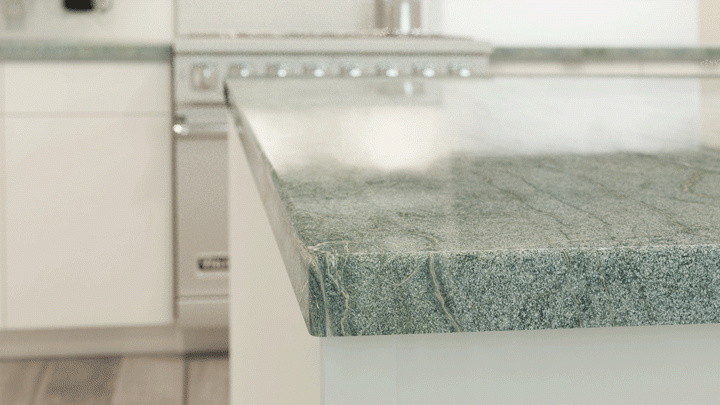
2cm Countertops vs 3cm Countertops
Let’s first begin with the two most common thicknesses utilized as it relates to stone countertop installations: 2cm and 3cm.
While there is a 20-40% difference in material costs between the two, 2cm tends to be utilized for backsplashes or surfaces that won’t be placed under stress regularly like a counter would be. That doesn’t mean 2cm countertops are always out of the question, but depending on the job, an experienced fabricator won’t risk an installation that will inevitable end will parts of the stone breaking off or collapsing entirely.
Additionally, an experienced fabricator wouldn’t install a 2cm countertop without laying down a base of plywood or similar material.
Nevertheless, if it’s in your budget, spring for the 3cm countertop, which is structurally sound enough to not need any kind of backup support system.
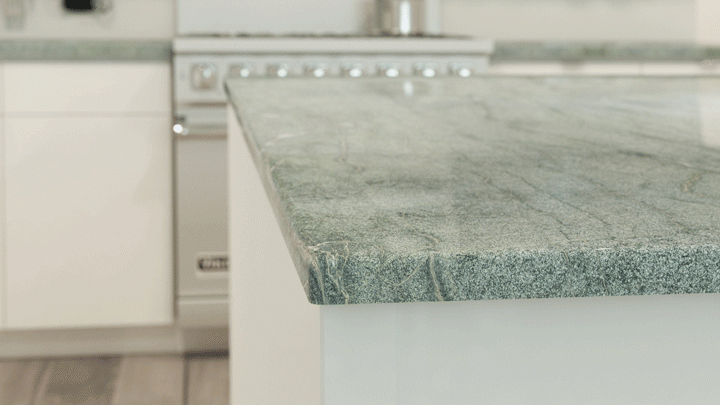
Thinner than 2cm
Maybe there’s a project where your preference is for an even thinner cut of stone than 2cm. Are you crazy? No, but you’re definitely pushing the boundaries of what’s possible or wise with stone. As for what thicknesses thinner than 2cm work, you’re looking between the 1cm and 1.2 cm range, and surely you will need to have the stone attached to some kind of base for the sake of its structural integrity. In all reality, doing 1cm marble countertops is risky (and no fabricator would suggest it), and will come with a laminated or pre-fabricated edge for sure. The best application of stone this thin is usually tile work or in large-scale construction projects like a hotel, where that reduction in weight would be a significant break on costs.
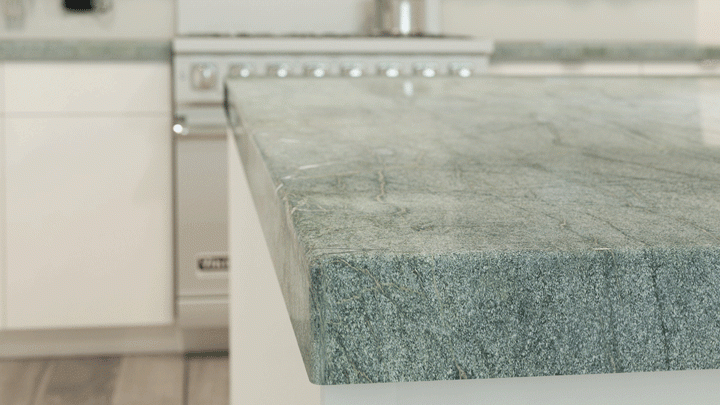
Thicker than 3cm
Now if budget is no option, the thicker route might be for you. After all, 6cm stone countertops make pretty impressive statements in terms of home design. For one, it symbolizes success on some level because you can afford to go real thick for that marble countertop. But more importantly, it just looks cool. And considering how standardized the 2cm and 3cm thicknesses have become, going thicker is a great way to have a more unique countertop than most people. That said, if you do opt for a 6cm or thicker countertop, take it to the next level and have your actual sink carved into the slab. Not going to lie, that’s the kind of power move that takes a home design project to a completely different level. Just be aware, you don't have to install a full 6cm slab to get this effect. A mitered edge and clean seam work could create the illusion of thicker countertops, without the cost or, more importantly, the weight.
Does Marble Need to be Thicker Than Granite?
All right, so even if you got a good idea for what thickness your prefer as well as what you can afford, selecting the material will factor in a little bit to settling on a final countertop thickness choice. Natural stone, in general, is durable and tough. Some cuts of stone are more durable and tougher than others. When it comes to two of the most common countertop materials, marble and granite, both are durable but granite is a bit tougher overall.
[get_quote]
If you do opt to go for a thinner countertop thickness, considering a material like granite or quartz might be the safest option. Marble is a softer stone and can be prone to chipping or scratches, moreso than granite. A thinner stone countertop (regardless of material), without the proper supports in place, could end with an unfortunate disaster all because someone leaned against the overhang the wrong way. So yes, certain materials are better if you want to go with a thin, lower profile thickness of countertop, but generally speaking, if you go below the 3cm range, any material is susceptible to breaking if mistreated or poorly installed.
Ultimately, by now you have the knowledge to make smart and meaningful decisions when it comes to predetermining what thickness you’d prefer for your countertop project. And that is good because you will certainly lose time trying to figure out what material you want and in what color. Having a sound understanding of all the considerations one must make in terms of thickness prior to picking material is a headstart many folks don’t get.













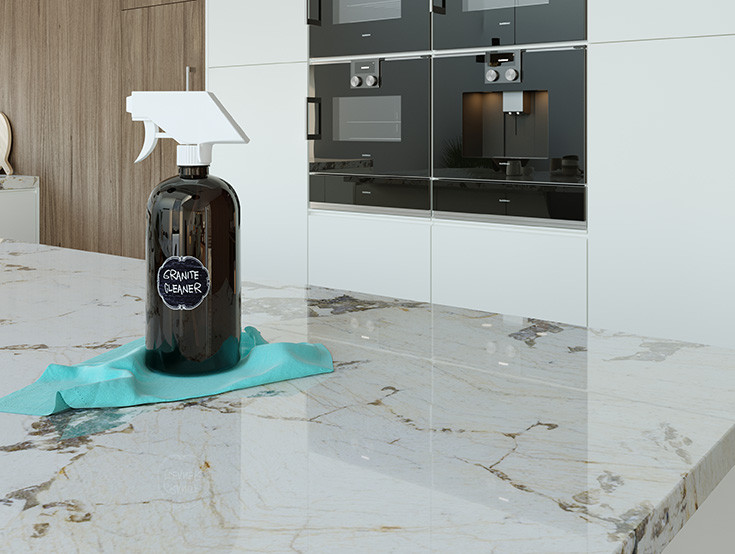

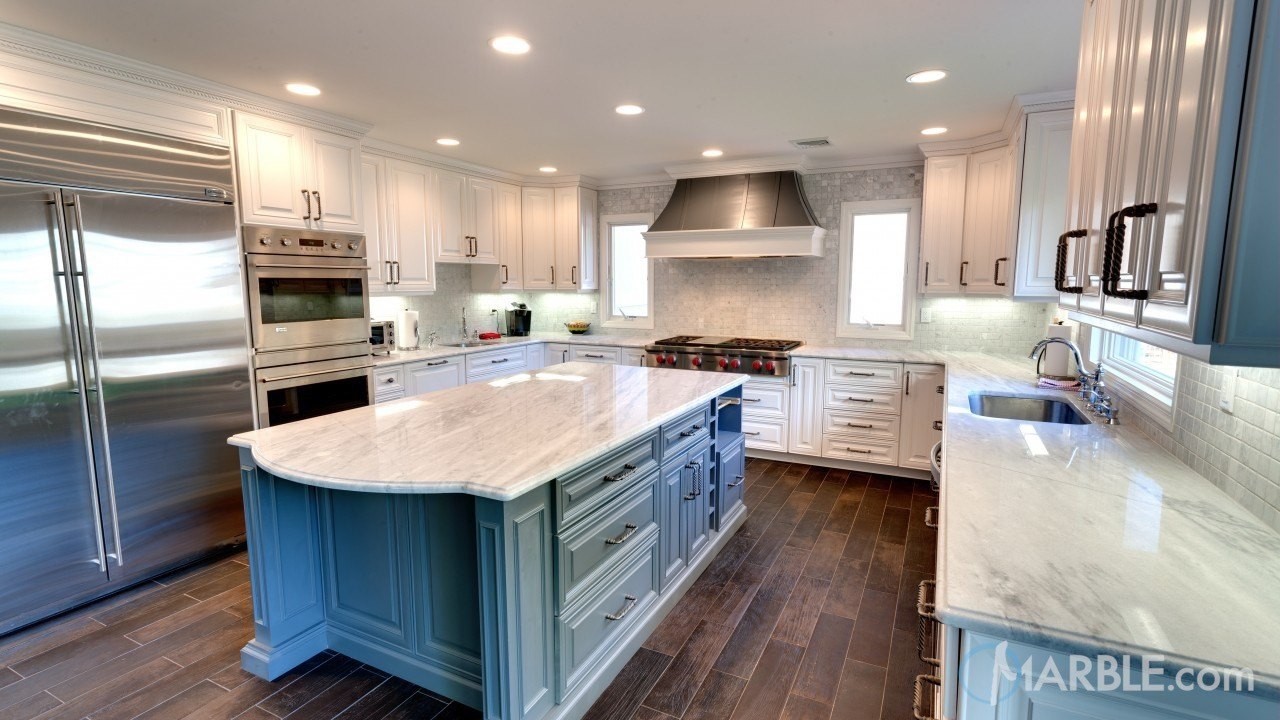
 The article helped me immensely
The article helped me immensely
 I’m now more informed on the subject
I’m now more informed on the subject
 I have questions about Marble.com
I have questions about Marble.com
 The article was not accurate at all
The article was not accurate at all
 There is a serious lack of information
There is a serious lack of information
 I have questions about Marble.com
I have questions about Marble.com